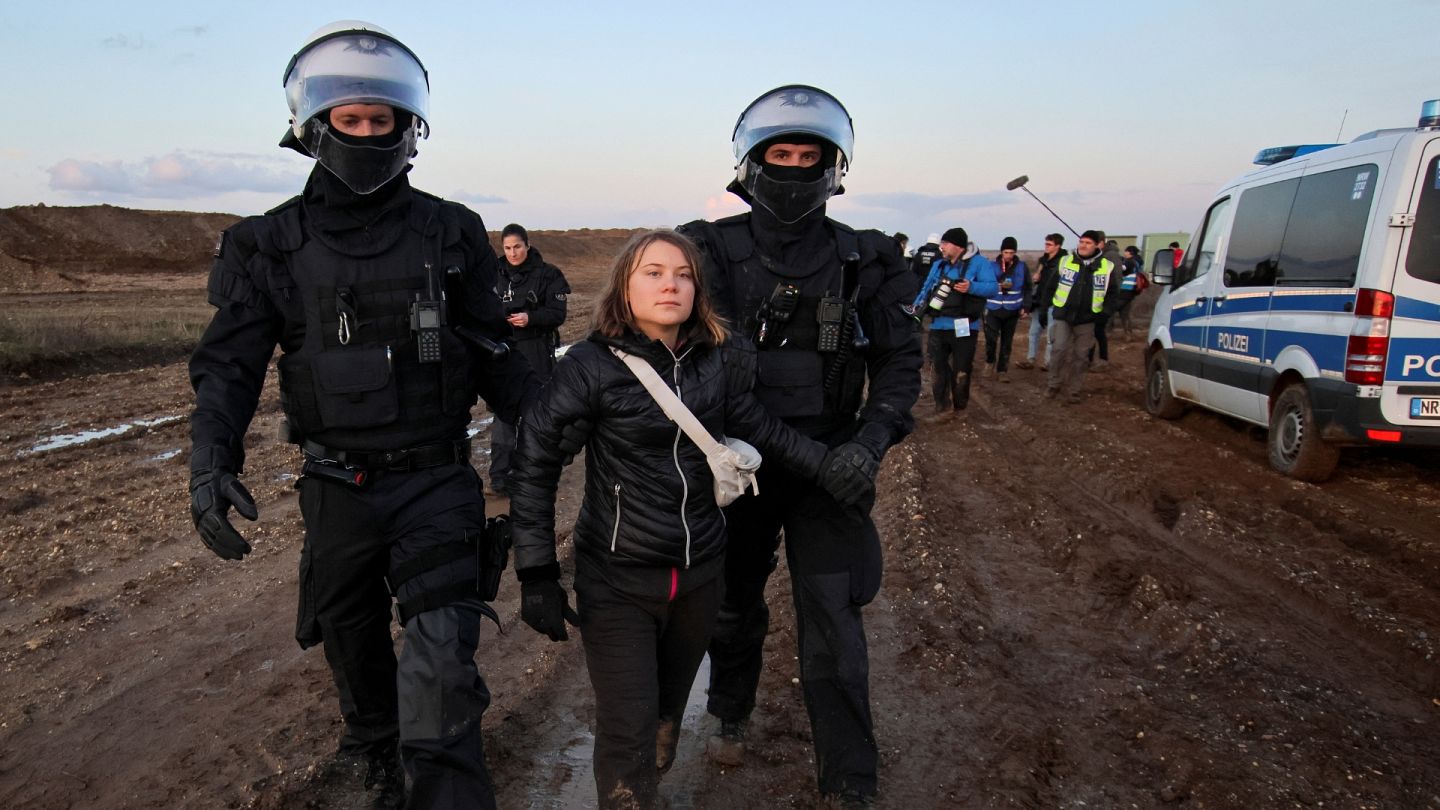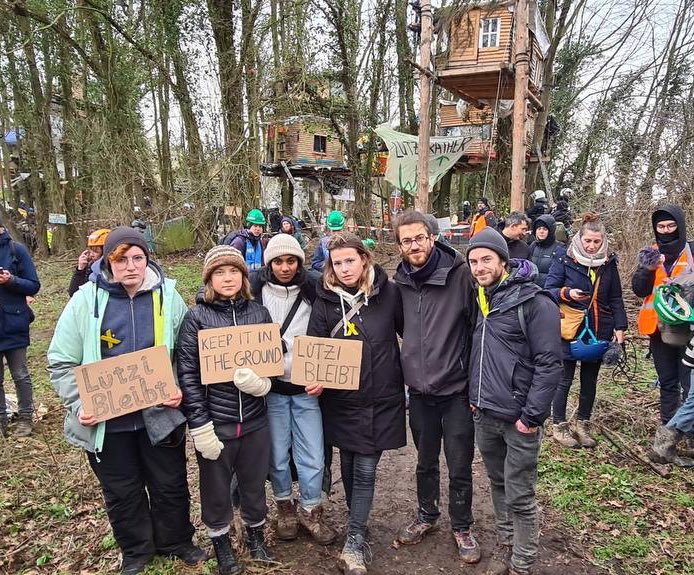Greta Thunberg was detained by German police while protesting a coal mine expansion.
Swedish climate activist Greta Thunberg was briefly arrested by police on Tuesday during a protest against the expansion of coal mines in West Germany, which has been the focus of the country’s climate change debate. Protests in Lützerath, a small village being cleared and demolished to make way, have become large and controversial over the past week. At least 15,000 people demonstrated on Saturday.

Among them is her 20-year-old Thunberg, one of the world’s most prominent climate change protesters since she spoke at the 2018 United Nations Climate Change Conference as a teenager. was included.
Thunberg traveled to Germany this week to participate in the Lützelath demonstrations. On Tuesday, she was among a group of protesters who were hauled away by police after approaching the edge of a mine, German news agency dpa reported.She was released shortly thereafter, according to Reuters.

=Garzweiler Colliery is one of three large open pit coal mines in North Rhine-Westphalia. Lignite, the type of coal mined, accounts for around 20% of Germany’s CO2 emissions.
The three mines have expanded over the decades. Over the years, some 50 villages in the region, with their centuries-old history, have been cut down and bulldozed to make way for mines.
Lützerath, about 15 miles from Germany’s western border, has been the focus of protests since a court allowed its demolition nearly a decade ago.

The settlement once housed about 100 residents, but all have moved out since 2017, according to RWE, the company that operates the mine. Since then, demonstrators have occupied the empty building.
Last week’s court ruling cleared the way for the eviction of squatters and the demolition of the settlement. Since then, the demonstrations and fighting have grown in size, with recent clashes between police and demonstrators.
Climate change activists say mining expansion could lead to higher greenhouse gas emissions and prevent Germany from meeting its Paris climate goals.
Energy has probably been the hottest political topic in Germany for the past two years. The country has traditionally relied on fossil fuels, but in 2019 he pledged to drastically cut greenhouse gas emissions by 2030. The timetable was then accelerated to 2021 when the country’s Supreme Court ruled that the government must do more to cut these emissions. After invading Ukraine in early 2022 and subsequently cutting natural gas supplies to Europe, Germany turned its attention back to coal power. At least 20 coal-fired power plants across the country have reopened or extended past their original shutdown dates to keep the lights on this winter.
Germany will miss its 2022 climate target and officials warn it is likely to miss its 2023 target as well.
In October, RWE and the German government announced an agreement to prematurely end the company’s coal operations in exchange for expediting the demolition of Lützelath.
The deal stipulated that RWE had to close the mine in 2030, eight years earlier than originally planned. The plan was to save five villages and three of his farms that were once scheduled for demolition.
However, according to RWE, the destruction of the Lützerath, which is very close to the edge of today’s open pit mine, was “necessary for optimal use of the coal”.
All of this has infuriated climate activists, who have staged near-daily protests over the past few months, including demonstrations blocking major streets and airport runways in Munich and Berlin.

